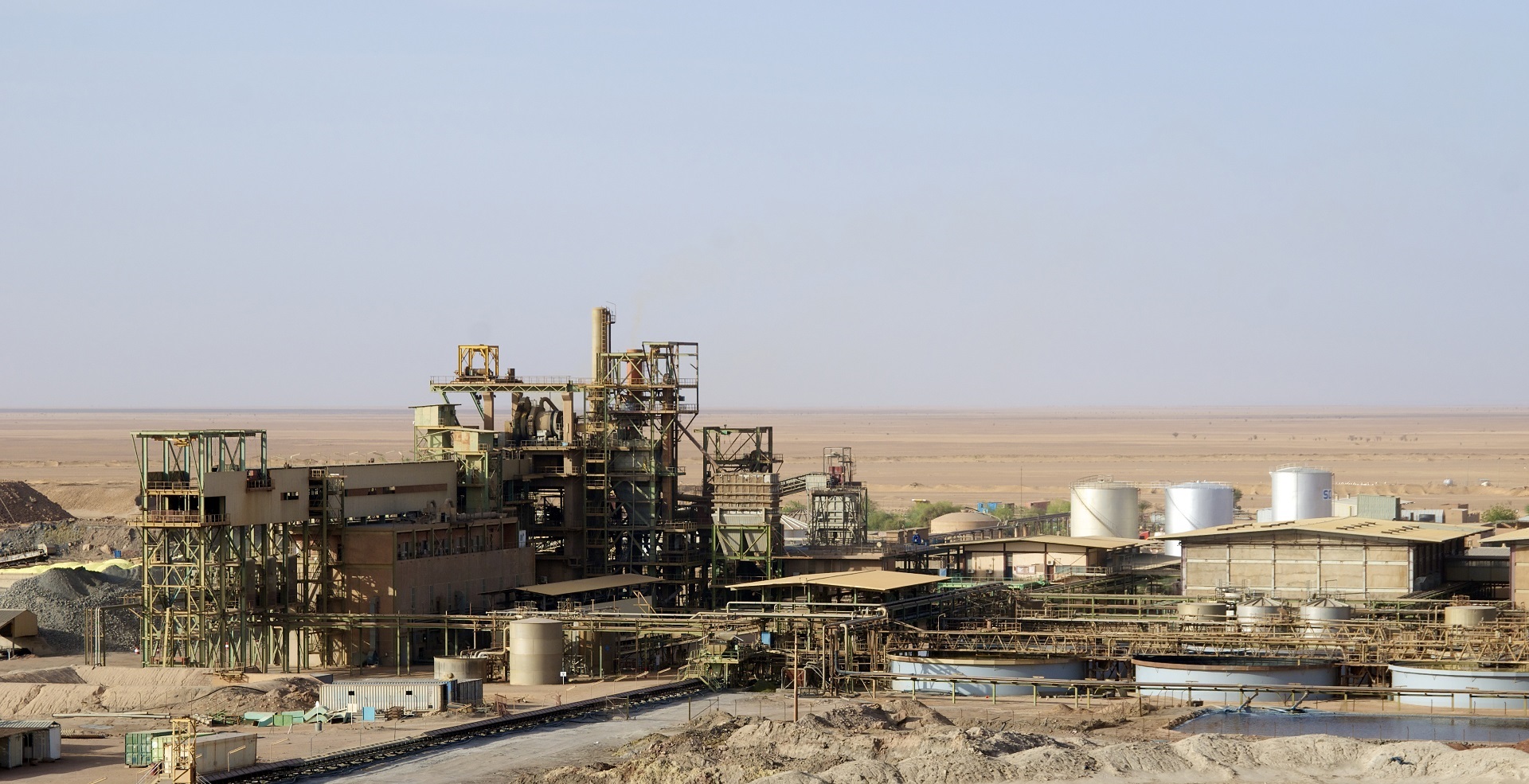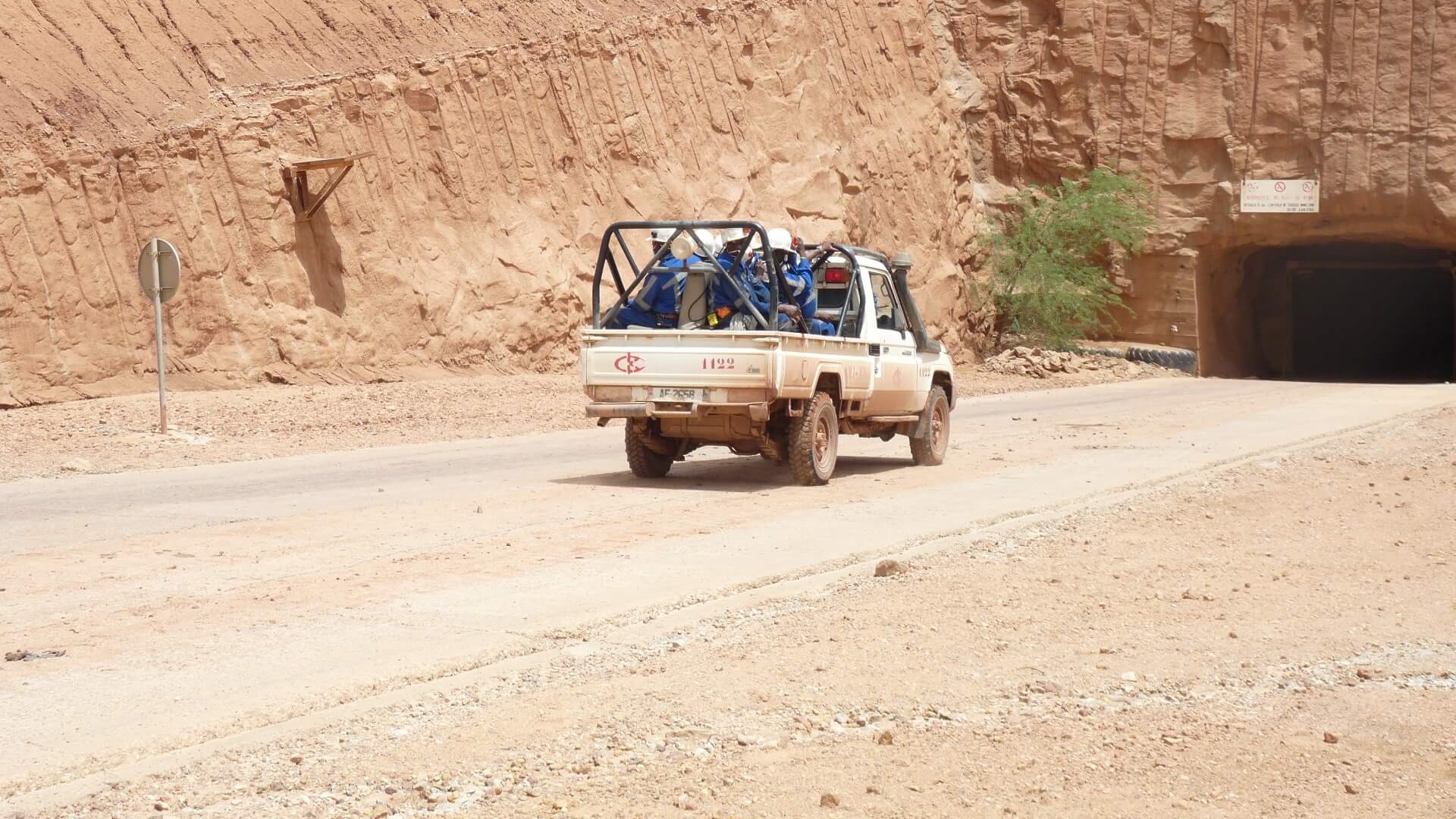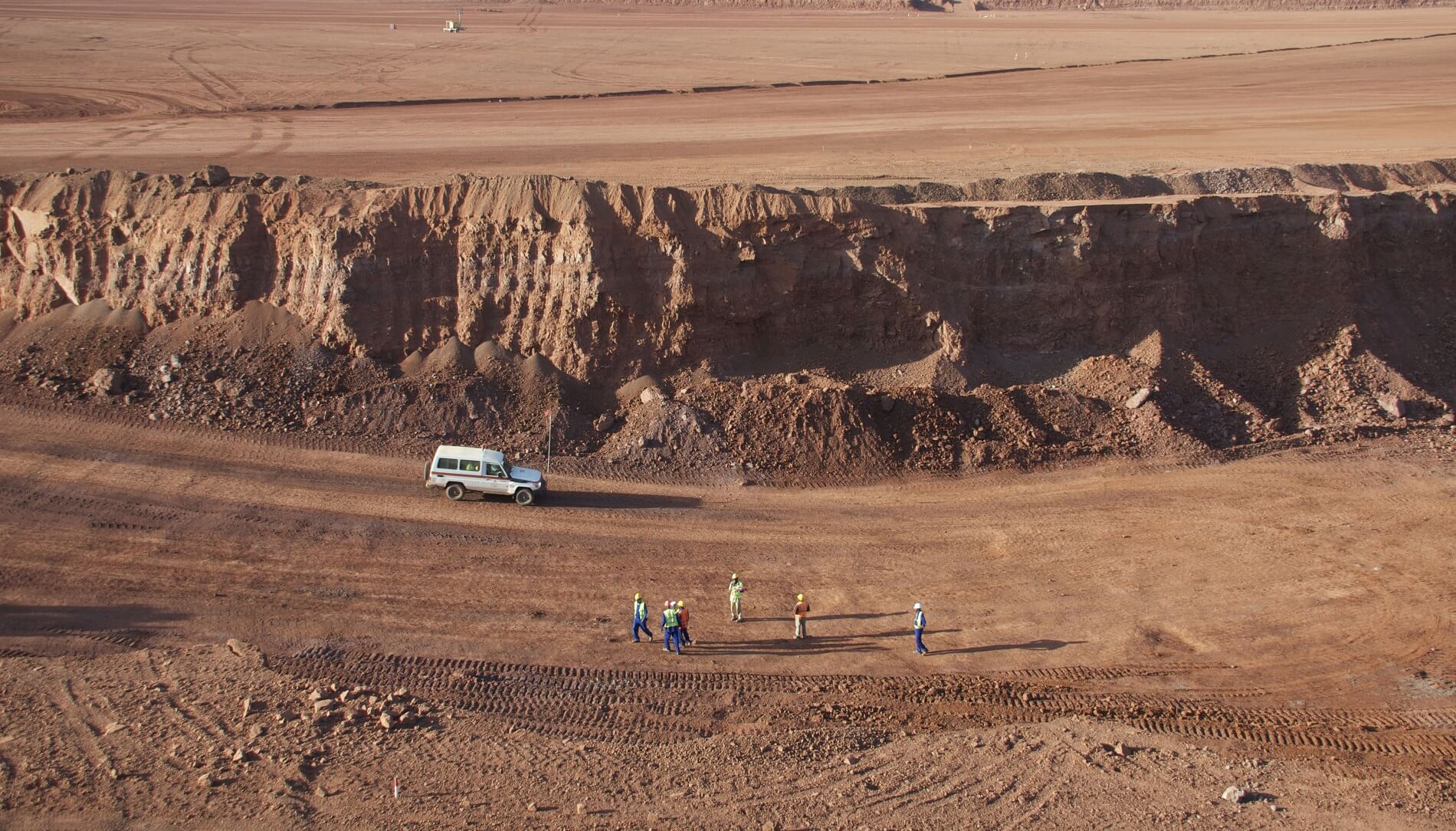🌍AFRICA 🌍 AFRIQUE 🌍 Said El Mansour Cherkaoui
France Admits Niger Bid to up uranium levy legitimate
Issued on: 06/02/2014 – 10:16
France has admitted that Niger’s demand for more revenue from uranium mining on its soil is legitimate. French-owned energy giant Areva is renegotiating the amount of royalties it should pay Niger for its mining operations there.

Areva operates two mines at Somaïr and Cominak in the north of the country and the uranium is vital for France’s nuclear power program which provides the country’s electricity.
The company’s contract with Niamey expired at the end of 2013.
Under deals signed in 1961 and 1968, Areva pays royalties of 5.5 percent.
Niger wants to apply a 2006 mining law that ends tax breaks for foreign companies and would raise the tax rate to 12 percent and negotiations between the company and Niger’s government are reported to have been “intense”.
French Development Minister Pascal Canfin, a member of the Green party, EELV, which in principle opposes nuclear power told the French parliament on Wednesday that the two parties have set a deadline for the end of February to sign an agreement and that the French government considers Niger’s requests to be legitimate.
Niger ranks last on the United Nations Human Development Index.
Four Areva employees were freed last October after being captured in Niger and held for three years by Al-Qaeda in the Islamic Maghreb.
July 28, 2023, Said El Mansour Cherkaoui – Version Française: Destin Africa in, Niger: Tensions Extraverties et Richesses Minières Africa Military Coup Niger Niger – Niamey Africa Knocked Out by Coups, Overthrown Regimes, Disrupted Territories, Disputed Borders, Fragmented Spaces. My Africa, Fric is not Chic that erodes Politics like Chicanery and Mockery of Democratic Elections The Problem … Continue reading“
In the Geopolitical Balance, Enriched Uranium Becomes a Poverty Tare for Orano
Orano cannot sell its Nuclear Power Plants without Guaranteeing a Supply of Uranium for 20 years
In the current global context, it is like selling a car without an engine and the existence of gas stations or electric charging stations.
Or as they say in Africa, Buying the Fish while it is still on the seabed of the Ocean.
This demonstrates the complete lack of consideration of these Western companies and their claims to power and the arrogance of their technological advances, that they allow themselves to consider Africa’s natural resources as acquired for their operational destiny for eternity.
This also reveals the complete lack of consideration for the technological and energy development of the host country and who owns these minerals essential to their downstream sales.
The door to Research and Development is closed and even walled for the House Africa and its need for in-house raised seeds of development.

Also in the same line of weaknesses and vulnerability of Western companies, is that they do not form local expertise in Africa as they do not transfer technology to make it localized with as foundations the establishment of a complementary partnership alliance of sharing responsibilities such as data and the objectives of adjacent research making the relationship between the foreign company in this case Orano a component of the development strategy of Niger and thus making this country a stakeholder and responsible for the supply of uranium to buyers of nuclear power plants produced jointly and in a complementary way between France and Niger.
The absence of such strategic foundations of alliance and collaboration can only be detrimental to both entities if a conflict arises or a strategic change of direction arises thus putting an end to this fragile relationship guided by the imperatives of immediate profit without return.
Take the money and run without consideration for the possible repercussions and the probable impact of sudden changes in the business relationship.

Africans and new military regimes have learned the lesson that mineral wealth can be a curse since the only interest identified by Western countries in Africa is in natural resources. Ahmed Sékou Touré was one of the first to issue this warning.
Henceforth, notice to amateurs and bounty hunters of mineral resources in Africa:
The conditions and rules of the chess game have become different and are based on the notion of winner – winner and the loser will be like Orano trapped in its bad calculations limited in time and space if not in profitability.
Said El Mansour Cherkaoui Ph.D. – Said Cherkaoui Ph.D. – 30 8 24
Africa #Niger #France #Orano #Uranium #Saidelmansourcherkaoui #Trickusa
In June 2024, Niger’s military government revoked the operating permit for the Imouraren uranium mine in northern Niger, which is operated by the French company Orano. The mine is one of the world’s largest uranium deposits, estimated to contain 200,000 tonnes of the metal.
The revocation of Orano’s permit is a significant escalation of tensions between Niger and France, the country’s former colonial power. The move comes as Niger continues to cut ties with France and establish closer links with Russia. Niger’s president, who was allied with Paris, was overthrown in a coup last July.
Orano said it was willing to keep communication open with the military authorities, but that it reserved the right to take legal action against the revocation in a national or international court.

For more than 50 years, Niger’s mining companies SOMAÏR and COMINAK have been developing value from the country’s uranium potential by mining déposits located in the northwest of the country in the desert region of the Aïr. Since the 1970s, industrial activity generated by site operations has been a major asset for regional and national economic and societal development. Following the depletion of its resources, the COMINAK underground mine will cease production on March 31, 2021. However, the site’s redevelopment and environmental monitoring work will continue for at least 20 years. A third site, Imouraren, will begin operations as soon as market conditions permit.
Creating the conditions and carrying out actions for the continuity of uranium mining operations in northern Niger is the cornerstone of Orano’s mutually beneficial relationship with Niger.
• In 2019, 2,982 tons of uranium were produced by the two operating mines.
• More than 50 years of mining activity.
• Average grade: 1.9 kg of uranium per ton of ore at the SOMAÏR mine.
• Average grade: 3.6 kg of uranium per ton of ore at the COMINAK mine.
Three mining sites in the Nigerien desert
Discovered in the late 1950s by the CEA exploration teams, the uranium-bearing zone has enabled an entire uranium mining industry to develop, led by the SOMAÏR and COMINAK mining companies. COMINAK will stop its production on March 2021 following the exhaustion of its resources. Orano is committed to responsible closure, in close collaboration with the other shareholders of the company. The Imouraren project, currently paused, will go into production depending on market conditions.
SOMAÏR, an open-pitmine
SOMAÏR (Société des Mines de l’Aïr) – 63.4% owned by Orano and 36.66% owned by Sopamin (Société du Patrimoine des Mines du Niger) – operates multiple fields near the city of Arlit. Extracted from an open-pit mine, the ore is treated by heap leaching or dynamic leaching.
• An open-pit horizontal sedimentary deposit, 165-230 feet deep.
• Production capacity of 2000 to 2,500 tons of uranium per year.
• Since the start of operations in 1971, production of more than 70,000 tons.

SOMAÏR continues to invest to discover new uranium resources and extend the life of the mine. Numerous initiatives have been launched to ensure that the operation of SOMAÏR continues beyond 2035, through technical optimizations and digitization. They help improve the economy and the quality and safety of operations.
COMINAK, underground uranium mine
COMINAK (Compagnie Minière d’Akouta) is 59% owned by Orano, 31% by SOPAMIN (Niger), and 10% by Enusa (Enusa Industrias Avanzadas SA, Spain).
Orano Mining has held 59% of the capital in COMINAK since the end of February 2021 after the acquisition of the stake held by one of the historical shareholders, the Japanese company OURD (25%).
COMINAK produced more than 75,000 tons of uranium during 47 years of mining at Akouta, Akola, and Ebba. Following the depletion of resources, the Board of Directors of COMINAK voted in October 2019 to stop production on March 31, 2021.

In consultation with the Nigerien administrations and its shareholders, COMINAK is leading a project to remediate its industrial site responsibly and communicates continuously and transparently with stakeholders.
Operations to remediate the site are expected to last for at least ten years. Environmental monitoring will continue after completion of the remediation work for at least 5 years, at the end of which a review will be carried out. These works will make it possible to hand back a site that is safe and compliant with national standards, international recommendations, and Orano standards in terms of safety and radiation protection.
Imouraren project, the mine of the future
Located about 50 miles south of Arlit and about 100 miles north of Agadez, this deposit, discovered in 1966, contains one of the largest reserves in the world. Following a feasibility study completed at the end of 2007, Orano was awarded an operating permit to mine the deposit in early 2009. However, since 2015, the work to bring the site into production has been suspended and the site has been put “under cocoon”, pending more favorable market conditions. The operating company is 66.65% owned by Orano and 33.35% by Sopamin and the State of Niger.
Today Orano is researching new mining methods to improve the project’s economics. The Group is planning drilling campaigns in certain areas of the field to test the feasibility of these new innovative methods.

• Site : 193 square miles.
• Reserves of more than 174,000 tons of uranium after recovery.
• Annual production capacity of 5,000 tons and lifespan of 35 years.

